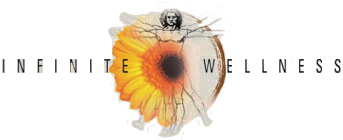In today’s wellness landscape, a growing number of people are turning to alternative and complementary therapies to address common health concerns. Among these, herbal remedies, homeopathic treatments, and nutritional supplements are particularly popular. Each of these approaches offers unique benefits and has its own supporters and critics. In this blog, we’ll explore how effective these combinations are in managing common ailments such as insomnia, fatigue, digestive issues, anxiety, and immune support.
Insomnia
Herbal Remedies
Herbal remedies like valerian root, chamomile, and lavender are often used to address insomnia. Valerian root has been shown in some studies to improve sleep latency and quality, although results can be mixed. Chamomile and lavender, both known for their calming effects, can help promote relaxation and improve sleep quality, especially when used as part of a bedtime routine.
Homeopathy
Homeopathic treatments for insomnia might include remedies like Coffea cruda (for restlessness) or Nux vomica (for sleeplessness due to stress). While some individuals report benefits, scientific support for homeopathy is limited, with many studies suggesting that its effectiveness may be largely due to placebo effects.
Nutritional Supplements
Melatonin, a hormone that regulates sleep-wake cycles, is a popular supplement for managing insomnia. It’s often effective for short-term use, particularly in situations like jet lag. Magnesium and certain B vitamins are also associated with improved sleep quality, as they play roles in regulating the nervous system.
Fatigue
Herbal Remedies
Adaptogens like ashwagandha and ginseng are commonly used to combat fatigue. Ashwagandha is believed to help the body adapt to stress and improve energy levels, while ginseng may enhance physical and mental performance. Evidence suggests that these herbs can be effective in reducing fatigue, particularly in stress-related contexts.
Homeopathy
Homeopathic remedies for fatigue include Arnica montana and China officinalis, often used for recovery from physical exertion or illness. Similar to insomnia, the scientific backing for homeopathic approaches is limited, and their effectiveness is often attributed to placebo effects.
Nutritional Supplements
B vitamins, particularly B12, are crucial for energy production, and deficiencies can lead to fatigue. Iron supplements are also important for individuals with anemia. Coenzyme Q10 and L-carnitine are other supplements that can support energy metabolism and help reduce feelings of fatigue.
Digestive Issues
Herbal Remedies
Peppermint, ginger, and fennel are well-known for their digestive benefits. Peppermint can alleviate symptoms of irritable bowel syndrome (IBS), while ginger is effective against nausea and can support overall digestive health. Fennel seeds are often used to reduce bloating and gas.
Homeopathy
Homeopathic treatments for digestive issues might include remedies like Nux vomica (for digestive disturbances due to overindulgence) or Lycopodium (for bloating and indigestion). While anecdotal evidence supports their use, scientific validation remains limited.
Nutritional Supplements
Probiotics are widely used to support digestive health by balancing gut flora. Digestive enzymes can also aid in breaking down food and improving nutrient absorption. Fiber supplements are beneficial for maintaining regular bowel movements and overall gut health.
Anxiety
Herbal Remedies
Herbs such as valerian root, passionflower, and lemon balm are used for their calming effects and potential to reduce anxiety. Valerian and passionflower may help with mild anxiety and stress, while lemon balm is often used in combination with other calming herbs.
Homeopathy
Homeopathic remedies for anxiety might include Aconite (for sudden anxiety or panic attacks) or Gelsemium (for anticipatory anxiety). The effectiveness of these remedies is debated, with many attributing positive outcomes to placebo effects rather than specific pharmacological action.
Nutritional Supplements
Omega-3 fatty acids, magnesium, and certain B vitamins are linked to improved mood and reduced anxiety. Omega-3s, in particular, have been shown to have potential anti-anxiety effects. Additionally, adaptogens like ashwagandha may help manage stress levels and reduce anxiety symptoms.
Immune Support
Herbal Remedies
Echinacea, elderberry, and astragalus are commonly used to support immune function. Echinacea is believed to enhance immune response and reduce the duration of colds, while elderberry is thought to have antiviral properties. Astragalus is traditionally used to strengthen the immune system.
Homeopathy
Homeopathic remedies for immune support might include remedies like Oscillococcinum (for flu-like symptoms) or Thuja (for recurrent infections). Scientific support for homeopathic remedies in this area is limited, with effectiveness often attributed to placebo effects.
Nutritional Supplements
Vitamin C, vitamin D, and zinc are well-supported by research for their roles in immune function. Vitamin C is an antioxidant that can enhance immune responses, vitamin D supports overall immune health, and zinc is crucial for immune cell function.
Conclusion
The combination of herbal, homeopathic, and nutritional supplements can be a valuable part of managing common health ailments, but their effectiveness varies depending on the condition and individual response. Herbal remedies and nutritional supplements generally have more robust scientific support compared to homeopathy, which often relies on placebo effects.
For those considering these approaches, it’s important to consult with healthcare professionals to ensure safety and effectiveness, especially if combining them with conventional treatments. Personalized care and evidence-based practices can help optimize health outcomes and provide relief from common ailments.






